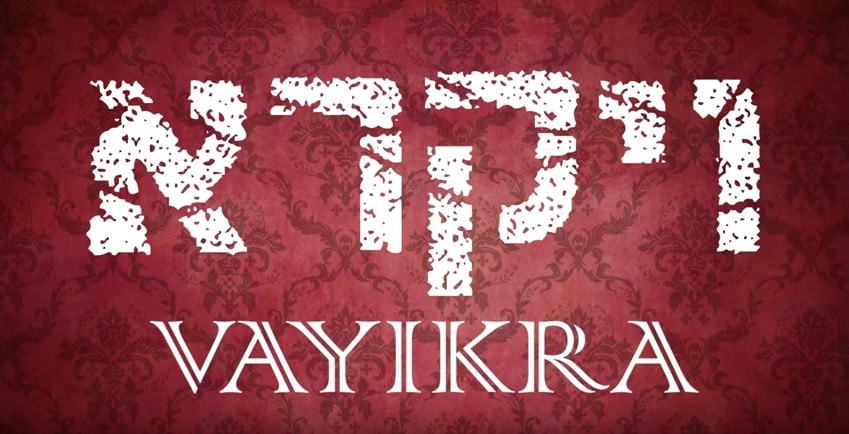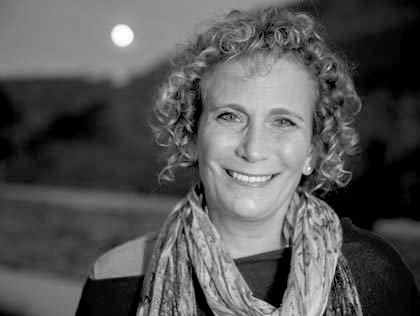 Screenshot from YouTube.
Screenshot from YouTube. PARSHA: VAYIKRA, LEVITICUS 1:1-2
“The Lord called to Moses and spoke to him from the Tent of Meeting, saying: ‘Speak to the Israelite people, and say to them: “When any of you presents an offering of cattle to the Lord, he shall choose his offering from the herd or from the flock.’”
Rabbi Rachel Shere
Adat Shalom Synagogue, Farmington Hills, Mich.

Last year, these words were chanted at our synagogue by a bat mitzvah girl named Shayla. The name Shayla means “question,” and when she was born nearly five months early, the doctors had a lot of questions about her ability to thrive.
The first word of the parsha, Vayikra, is written with an aleph ze’irah. A tiny letter aleph; the diminutive nature of the letter draws attention to the difference between the word with an aleph, vayikra, and without the aleph, vayikar. Without the aleph, the word denotes randomness. With the aleph, it denotes God’s will.
When Shayla was born, her parents asked me, “Rabbi, is this the will of God?” At the time, I reassured them that Shayla’s challenges were not the will of God and that, as Rabbi Harold Kushner famously explained, “Expecting the world to treat you fairly because you are a good person is like expecting the bull not to charge because you are a vegetarian.”
In the 14 years since, as I have watched Shayla’s irrepressible spirit embrace a world of doctor’s appointments, surgeries and unbelievable pain, the clear line I once drew between vayikra and vayikar seems less obvious. Shayla’s strength and bravery feel superhuman; her resilient spirit and luminous smile seem to come from a different world. Perhaps the aleph in vayikra is small not to highlight the difference between vayikra and vayikar, but to remind us that God has given humanity the tools we need to bridge the gap between the two words. For as Shayla said recently, the questions were never really about her, they were for her; and their answers, I believe, are evident in the radiance of her smile.
Rabbi Haim Ovadia
Magen David Sephardic Congregation

Many Orthodox Jews believe that we will one day return to offering animal sacrifices. As a one-time vegetarian, I contend that the Torah tries to minimize and regulate the consumption of meat and that animal sacrifices belong in the past.
The prohibition of cooking meat with dairy is phrased as “do not cook a kid in its mother’s milk,” to say that the act of eating meat is cruel enough, and there is no need to add to it by cooking the animal in its life-giving liquid. The commandment in Leviticus 17:13 to cover the blood of a hunted animal can similarly be understood as telling the hunter that he has committed a crime and that he must cover it up.
While the annual number of public sacrifices at the temple hovered at around 1,300, the number would have been much greater if people had been allowed to build private altars and make their own sacrifices. The indication of what a future temple would look like is found in the words of the prophets. Isaiah and Micah, Samuel and Jeremiah, along with the book of Psalms all reject the idea of animal sacrifices. Isaiah calls on people to cleanse their hearts and mend their ways, while Micah sums it up succinctly in his final verses (6:6-8): With what should I please God? Sacrifices? Rams? Rivers of oil? If you ask what is good, and what it is that God wants from you, it is doing justice and loving kindness, and walking humbly with God.
Rabbi Jill Zimmerman
The Jewish Mindfulness Network

As we enter this book filled with sacrifices, it’s easy to simply turn away. Yet we are encouraged to struggle each year with all the parts of Torah, even (especially) the ones that are difficult to connect to our personal lives today.
The first word, Vayikra (and God called), is enough to spend a lifetime pondering. Have you ever felt called? Was it a whisper for years that suddenly got louder? I was 43 when I began studying for my adult bat mitzvah. During that process, the love of serious Jewish study became more and more compelling. I could not ignore that call to dive deeply into Jewish wisdom — reading, studying, listening. Immersed and feeling led by an unknown but firm pull, I applied to rabbinical school. I could not know at the time the sacrifices our family would make as we left our settled, happy lives in Seattle because of answering this call. We left cherished friends, a home and garden we loved, beloved teachers and students and financial steadiness.
So, yes, every call that you respond to brings both joy and sacrifice. I listened. I’m grateful I did — and now my life itself is an offering. I’m here to say: Slow down. Get quiet. Listen. The Voice is calling out every moment of every day.
Rabbi Aryeh Markman
Aish LA

How can we have a genuine God experience as Moses did? Why do we need it?
Our greatest need is self-worth. We have purpose. We matter. The greatest manifestation of that drive is connection to God. We pursue it, perhaps subconsciously, every moment we are alive. We cannot reach God by thinking in platitudes and performing man-made, feel-good activities. Rather, let’s decode the Torah and learn how.
The Torah is very sensitive to the proximity of verses. We begin a new book of the Torah, Leviticus, with God calling Moses from the Tent of Meeting. The Tent of Meeting (the Tabernacle in the desert) is a perfectly designed structure to empower each of us to encounter the Creator of the Universe.
The next line in the Torah says: If you want that Divine connection, bring an animal and sacrifice it in the Tent of Meeting, following a specific procedure without any deviation. Why an animal? Because we need to channel our animalistic desires by metaphorically slaughtering them. Only then can we enter into a pure spiritual realm.
Trying to understand how God created a path to him is like a two-dimensional stick figure trying to conceive of the three-dimensional animator who created it. It’s beyond us.
Currently, the entire sacrificial system is inoperable. But we can derive from it that if we consistently engage in the Torah that is available to us, we can have an ongoing authentic God experience. And that’s what life is about.
Rabbi Adam Kligfeld
Temple Beth Am

Two alephs deserve inquiry. Most attention is focused on the miniature aleph at the end of Vayikra that some read as highlighting the often miniscule line between the intentional calling-out denoted by vayikra and the cold, arbitrary happenstance of vayikar, which is how it would read without the aleph. With the slightest of slights, with a whisper of cool, we can degrade intimacy to accident. And, in reverse, by offering just a bit more of our aleph, our ani /I , and being full witness to another’s, we can elevate randomness to sanctity.
Fewer commentators focus on the second aleph, which, according to the Netziv (19th-century Lithuania) converts the utilitarian preposition l’ to the more honoring invitation of el. This is one of only two times in the Torah that God calls out “toward Moshe” using this exact phrasing. Many other times, God calls “to”/l’ Moshe to beckon him to a place, to instruct him in a task, or to convey essential data. But only twice does God melt the innumerable layers of distance between them and draw him close, almost as if wooing him.
How much wooing and cooing is needed so that relationships endure? Psychologist John Gottman suggests that healthy bonds require five times as many positive interactions as negative ones. The Torah may be hinting at something less numerical and more subtle: Whenever you call to your beloved, child or friend … use your aleph, your infinitesimal-but-real spark, to witness theirs. A little intimacy is often enough. But don’t wait too long to do it again.























 More news and opinions than at a Shabbat dinner, right in your inbox.
More news and opinions than at a Shabbat dinner, right in your inbox.